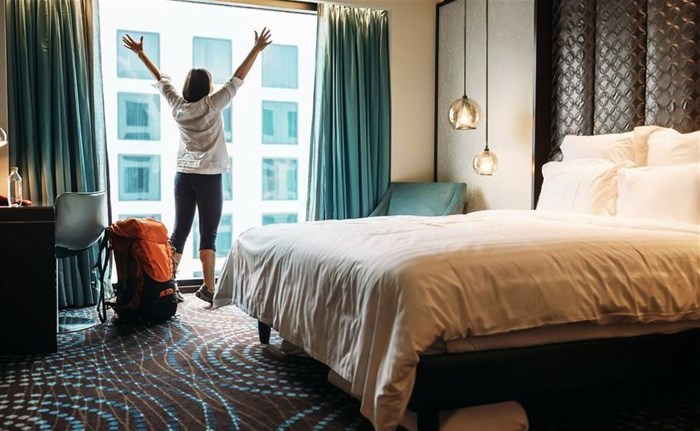
"Hoteliers, guest houses and lodge owners need to know there is light at the end of the tunnel. Clearly, there is still an appetite for domestic business and leisure travel, even if most South Africans are unable to travel abroad for now. We expect to see a similar trend once the third wave has peaked and in decline," says Niels Verspui, country manager at RoomRaccoon South Africa.
RoomRaccoon statistics during and following the second wave of Covid-19 infections in the country showed that bookings for accommodation businesses nearly doubled in December, February, March, April and May 2021, with up to 60% of rooms booked in these months, well above the benchmark of 30%. Tourism business owners must not lose hope and should prepare for a similar rebound following the third wave.
This is already coming to fruition with RoomRaccoon recording the majority of guests making bookings for the future at accommodations in both small towns and large metros.
Establishments in coastal areas including Cape Town’s Atlantic Seaboard, as well as the Stellenbosch Winelands and Franschhoek regions, the Garden Route, and the Drakensberg, have seen the highest occupancies, and although leisure travel to Gauteng is currently restricted, people are still placing last-minute bookings in the area for business or essential activities allowed under the current restrictions.
It is clear however that, worldwide, the industry has suffered a severe shock and that it will take time to recover. The United Nations Conference on Trade and Development estimates that countries with low vaccination rates will likely see a 75% reduction in tourism, while countries with high vaccination rates will see a 37% reduction. As such, South Africa’s industry will be relying on domestic business and leisure travel to survive.
"Although considering the rate core markets such as Germany, the Netherlands, UK and the USA are rolling out their vaccination programs, people may start travelling the world more frequently as various restrictions are lifted," says Verspui.
The tourism sector has historically played a vital role in contributing to the country’s gross domestic product (GDP). Pre-Covid, tourism directly accounted for 2,9% of the GDP (8,6% indirect) and supported 725,000 jobs directly in 2018, according to Statistics South Africa and the WTTC. In 2018, tourism was the economy’s second most important sector, with inbound tourism generating over R82bn in foreign spend and domestic tourist activity directly contributing a further R9bn.
However, as a result of Covid-19, Statistics South Africa’s Tourism 2020 report revealed that the number of tourists travelling to the country decreased from 10.2 million in 2019 to 2.8 million in 2020.
Fast forward to today, with South Africa well into its third wave of Covid-19 infections and currently operating under level four restrictions with a ban on leisure travel to Gauteng. This is vital to mitigate the spread of the highly transmittable Covid-19 Delta variant to save lives. All tourism businesses must ensure they are meticulous in following Covid-19 safety protocols to protect guests and staff and ensure that they are compliant with government regulations.
Many South Africans want to take part in tourism and travel activities locally in a sustainable and Covid-safe way – a trend dubbed the "conscious traveller" approach. They want to enjoy travel without endangering others.
Hoteliers should also note that traveller behaviour is changing, says Verspui. "For example, guests on average are booking rooms between Monday to Friday with a clear drop on the weekend. This could also possibly be attributed to conscious travellers looking to avoid crowds or business travel taking centre stage."
With these trends in mind, he says that it is vital for the industry to look at ways to safely operate alongside the virus based on learnings and solutions implemented over the past year. "More and more independent and medium-sized accommodation establishments are adding smart touchless or contactless elements to the customer experience, including contactless checkouts via app or email."
"However, these businesses need all the support they can get. Financial relief for the tourism industry will help protect jobs and ensure that operations can resume post-pandemic, while the Temporary Employer/ Employee Relief Scheme (Ters) will assist workers during a time of unprecedented hardship. An expedited vaccine rollout will give guests peace of mind and help to restore national confidence," concludes Verspui.